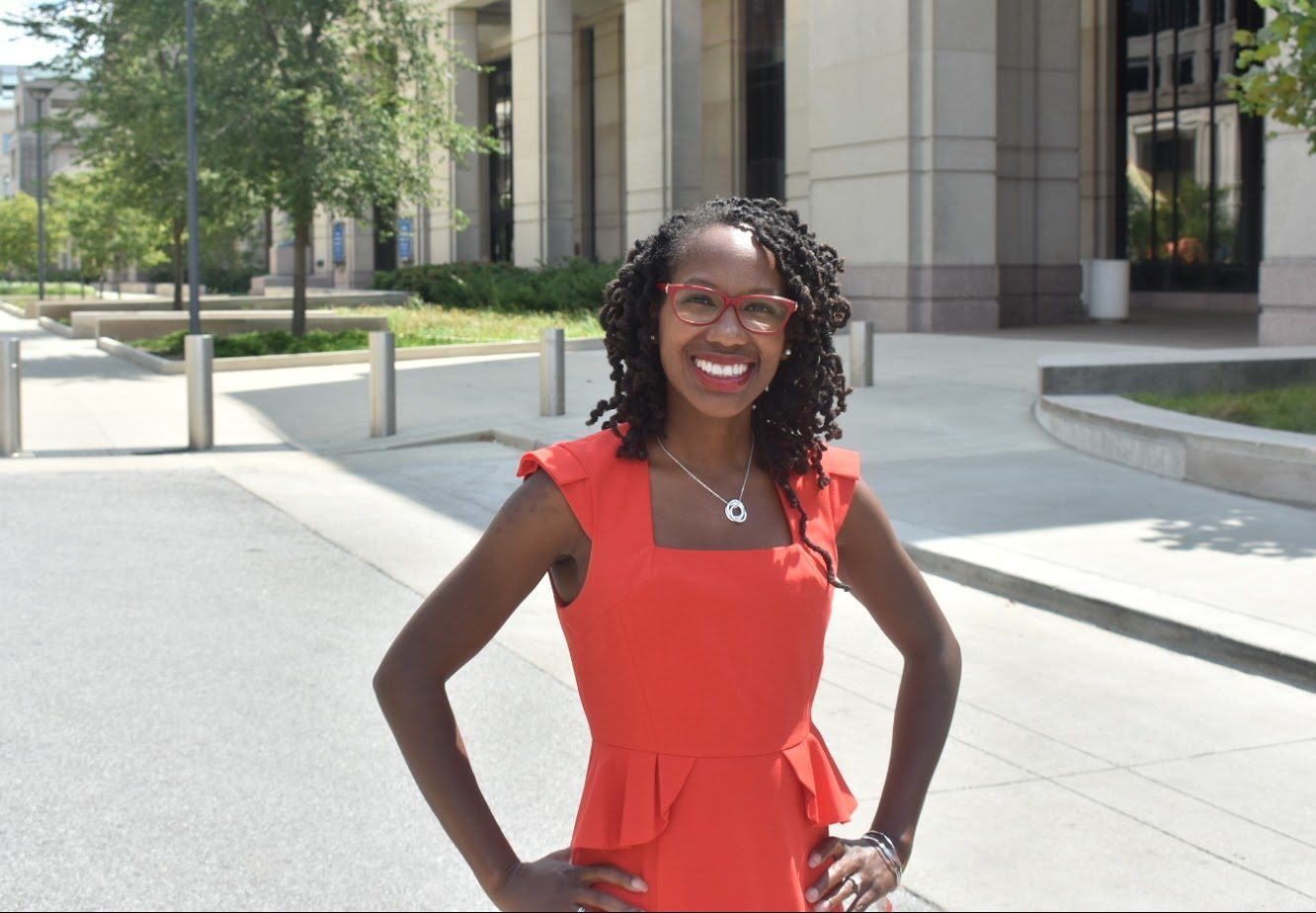New Women’s and Gender Studies Director Nadia Brown Answers Q & A
Nadia Brown, prize-winning political scientist and academic entrepreneur, will begin her tenure as director of the Women’s and Gender Studies Program this summer. Brown will also be a Professor in the Department of Government with an affiliate appointment in the Department of African American Studies. These questions offer a glimpse into how she will approach her new roles on the Hilltop.
What project are you most looking forward to working on as the new director of the Women’s and Gender Studies Program?
I’m most interested in thinking about how to build the program through buy-in from students and current faculty. I would also like to expand women and gender studies by talking to people who were previously part of the program and by bringing in those who never saw themselves as having a home in women’s studies before. I see this as a collaborative effort – some things will be shaped by my ideas, but I’m really most interested in listening and learning from other stakeholders about what they would like and how we can make something great together.
What unique perspectives do you bring that will help to improve Women’s and Gender Studies and the university as a whole?
My life experiences and the scholarship and research that I do as a Black feminist will inform my approach in this new position. I come with a set of beliefs, pedagogical practices and ethics of care that are inextricable from my identity as a Black woman. As a Black woman who does research on Black women and Black communities, I’m really hoping to push the program to continue to think about the ways that gender is intersected with a myriad of other politically salient identities that matter deeply such as race, sexual orientation, class, ableism, nativity and immigration status. All of these things need to be interrogated when we think about the category woman.
I know that this is something that feminists are not new to, particularly feminist activists. But I think that when it comes down to our lived practices in the academy, unfortunately, these problems often become these single-axis issues. For example, we often talk about race or gender as though they are isolated topics. That is just not the case. I know from the interactions I have already had with members of the Georgetown community that they also want to examine things using intersectionality as an analytical lens. This is something I hope to develop further. My background makes thinking about this holistically – almost like second nature. But I seek to find a common ground with others. My goal is to talk with a plethora of other stakeholders about why they should be thinking about women’s studies.
I’m also a political scientist so there is no better place to study politics than in the nation’s capital. I am beyond excited to bring people to campus who are living at the intersections of politics and scholarship, particularly those that will expose our students in deeper ways to feminist policies and practices that are happening on the Hill and within indigenous DC communities. I want us to examine issues around gentrification, maternal health, domestic violence and what statehood may or may not bring for women in the District. These are deeply feminist issues. I am over the moon to be coming to DC as a political scientist – a feminist political scientist – and as a Black feminist to do this work.
What is your focus in research?
I mostly study Black women political elites: candidates, elected members of legislatures, those in city governments and Congress. In my new book Sister Style which came out earlier this year, I examine the politics of appearance. Specifically, this book explores what Black women look like to argue that appearance matters in their elections and their experiences with politics. For example, I ask in the book if having natural hair or darker skin impacts how voters perceive them? Most importantly, it looks into how Black women candidates think about how to style themselves in order to relate to different community groups and outreach. The overall message of the book is that their actions are caused by white supremacy. They aren’t styling themselves in a certain way because they are anti-Black. It’s an analysis of how Black women political elites are pragmatic and recognize that in order to be elected or to push a political agenda, they have to fully engage with white supremacy.
What part of joining the Georgetown community are you the most excited about?
Being back in DC has been a dream of my family for a long time – my partner and I went to Howard and we are thrilled to be back. All of the faculty, the staff and the students I have met at Georgetown so far have been amazing. I can’t wait to be a part of the university. Being able to work with colleagues who share a similar orientation toward justice is a huge draw for me. I think the leadership on issues that are happening today around racial justice is a big signifier of the values of the institution.
What are three fun facts about yourself?
I am my family’s mixologist. I make all types of cocktails. I have three little kids, and so I make them mocktails. I’m also a vegan baker – it’s a big de-stressor for me. I don’t use a recipe so I never make the same thing twice. But I often share vegan treats with my neighbors, friends and colleagues. I always make at least three batches of my vegan treats multiple times a week. The last fun fact is that my family does not own a TV!
-by Shelby Roller (G’19)
